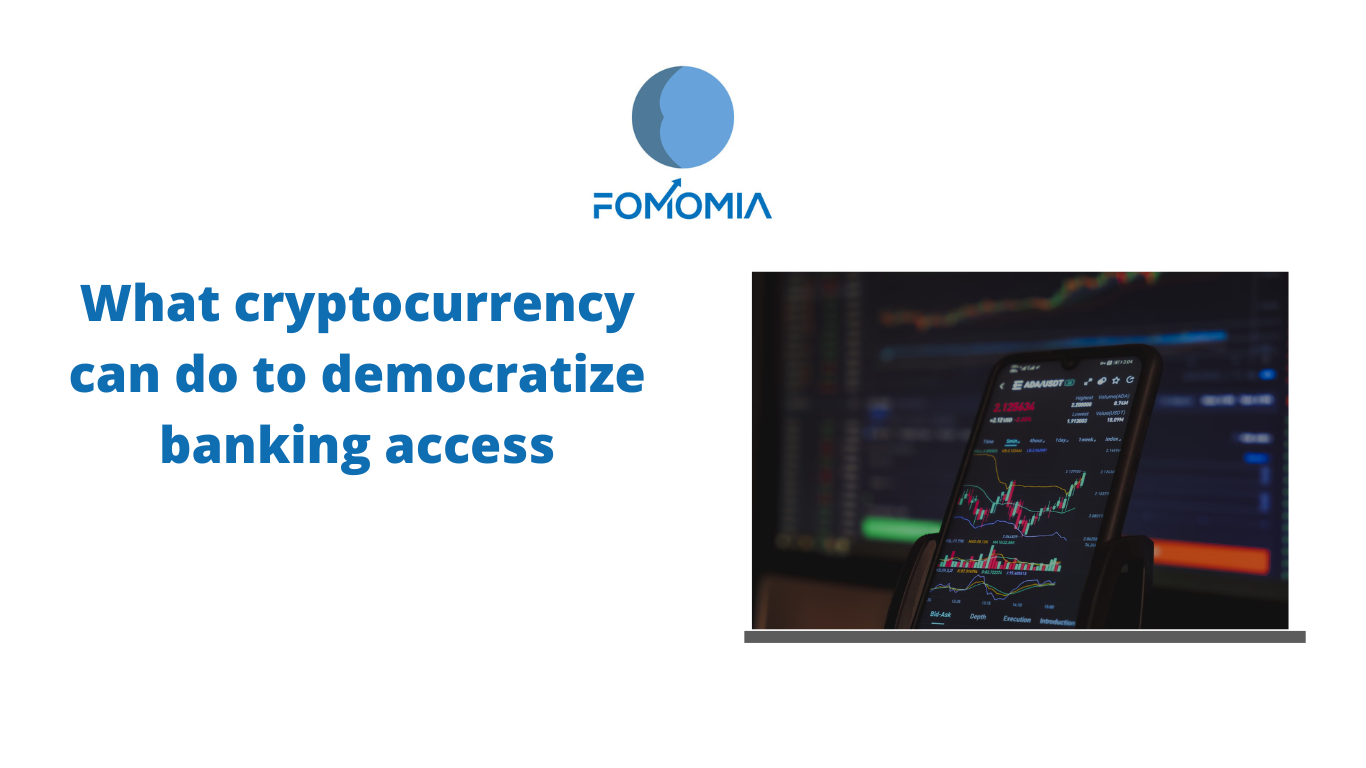What cryptocurrency can do to democratize banking access
For people and businesses without resources, traditional banking is a difficult and expensive system to use. Customers of banks must open a bank account, which might be challenging if you don't have a reliable mailing address or a good credit history. Banks frequently levy transaction fees, which can be costly for those with limited financial resources.
A new financial technology that has the potential to democratize access to banking in a number of ways is cryptocurrencies like Bitcoin, Ethereum, and Tether.
Lowering obstacles to access
By lowering entry barriers, cryptocurrencies can, among other things, democratize access to banking. Users of cryptocurrencies are not required to have a bank account or good credit. People and enterprises that have been shut out of the regular banking system can now access it more easily.
Cut expenses
Cryptocurrencies can also aid in lowering transaction fees for financial transactions. Transactions using cryptocurrencies are often less expensive than those using credit cards or checks. Low-income individuals and businesses may benefit from this.
Providing individualized financial services
Personalized financial services can also be provided through the use of cryptocurrencies. Bitcoin and other cryptocurrencies are based on blockchain technology, a decentralized database that enables direct communication between users. By doing this, companies may find it simpler to offer financial services to unbanked individuals and organizations.
Here are some particular instances of how the democratization of banking is being accomplished via the use of cryptocurrencies:
People without access to traditional banks can open bank accounts with the digital banking provider Abra. Blockchain technology is used by Abra to process transactions and give its clients access to a range of financial services, such as loans, savings accounts, and investments.
Kiva, a microfinance organization, lends money to individuals and companies in underdeveloped nations using bitcoins. Although Kiva charges a 5% fee for loans, borrowers are not charged for the processing of payments.
African individuals and businesses can make international payments using bitcoins through the microfinance provider BitPesa. In contrast to conventional remittance services, BitPesa processes payments promptly and with a lower commission at a cost of 5%.
These are just a few instances of how cryptocurrencies are being applied to broaden banking access. We are sure to see more instances of how cryptocurrency technology can be utilized to address this significant concern as it develops.
Conclusions
In a number of ways, cryptocurrencies have the potential to democratize access to banking. They can lower expenses, lower obstacles to access, and provide individualized financial services. Cryptocurrencies do, however, also come with dangers, including those related to volatility, security, and environmental effects. Before making an investment in cryptocurrencies or engaging in transactions utilizing them, it is critical for individuals and organizations to be aware of these hazards.


